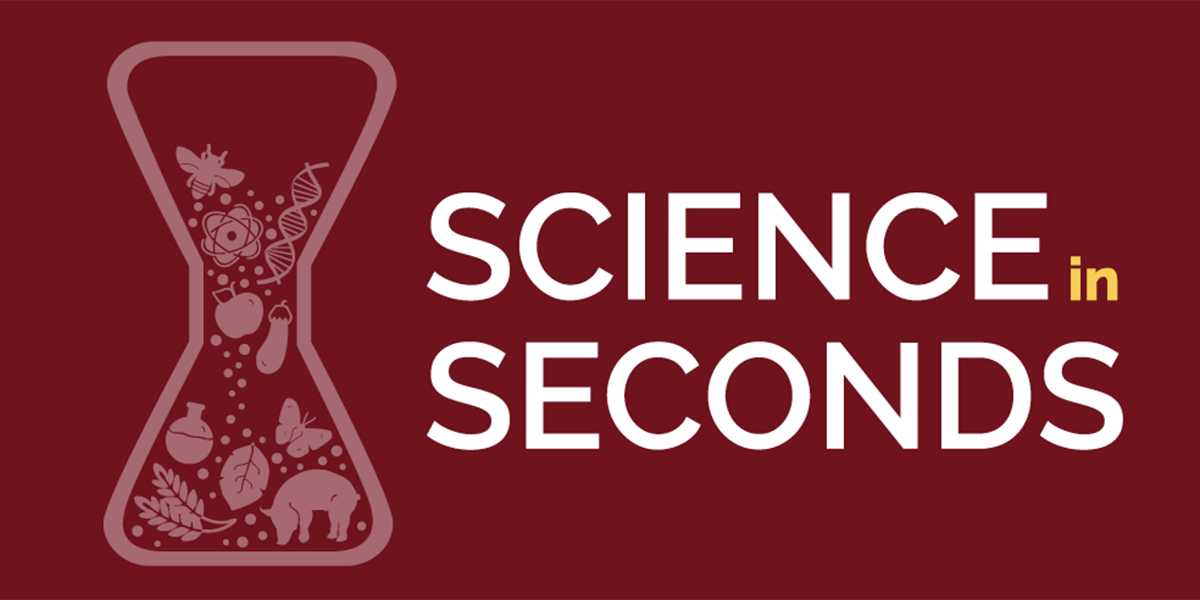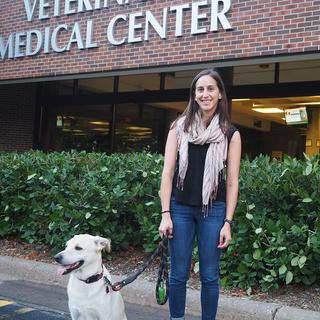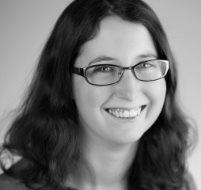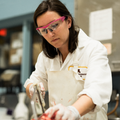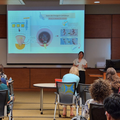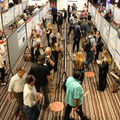- Issue:Tags:Published:
For graduate students, summing up hours and hours of research usually takes the form of a lengthy thesis. PhD candidate Marissa Milstein, DVM, didn’t have dozens of pages. She had one slide and three minutes to take viewers on a journey into her research.
Milstein’s presentation on her work with an indigenous group called the Waiwai to study zoonotic disease transmission from hunter-harvested meat and vector-borne disease transmission earned her top honors at the recent Science in Seconds Competition held on Oct. 18.
“As a veterinarian with a background in anthropology, I am particularly interested in understanding the cultural drivers of emerging infectious disease in wildlife and human populations,” Milstein told the crowd of more than 60 viewers.
The competition challenged participants to whittle down their research into a presentation three minutes in length and using only one slide of information.
For Milstein, that meant condensing many hours spent in the Amazon rainforest hunting with Waiwai people, collecting tissue samples from the wildlife they harvest, and analyzing the samples for evidence of disease into a short presentation.
“I also spend long periods of time living with the Waiwai to understand local perception and traditional ecological knowledge of disease emergence and prevention,” Milstein said during her presentation. “This knowledge is vital in preventing the next pandemic and understanding how diseases are transmitted throughout the wildlife community and beyond.”
This knowledge is vital in preventing the next pandemic and understanding how diseases are transmitted throughout the wildlife community and beyond.
Marissa Milstein
In all, 12 students from the College of Veterinary Medicine (CVM); College of Food, Agricultural and Natural Resource Sciences; and the College of Biological Sciences competed for a grand prize of $500 and a People’s Choice award of $250.
As the winner, Milstein will move on to compete in the University's 3 Minute Thesis competition from 10-11 a.m. on Nov. 12 at Coffman Theater. The format will be hybrid, where presenters and attendees can participate in person or online.
CVM’s wins at Science in Seconds didn’t stop with Milstein. Emily Pope, a dual DVM/PhD student, claimed the People’s Choice prize. The prize was awarded to the participant whose presentation was selected by the most audience members as their favorite of the event.
Pope’s research seeks to understand how a tumor’s physical environment contributes to chemotherapy resistance in cancer treatment and to develop a better animal model to test new therapeutic approaches. In her presentation, she used the very familiar Minnesota experience of battling winter weather to illustrate her point.
“Like snowflakes, each tumor is unique with a variety of genetic changes in itself,” she told audience members. “Like a snowdrift at the end of your alley, a congregation of cells is a problem. And, most importantly, like snow blowing in the wind, cancer cells spread and land in new locations.”
Sometimes chemotherapy drugs can get held up, like a car in the snow, but Pope is investigating how an enzyme called hyaluronidase can act like a snowplow and clear the way for cancer treatments to work more efficiently.

